This edited book aims to provide better insights on the socio-economic reality of the outcastes or the Avarnas of India, commonly known as Dalits. It will try to include the status, change and continuity of various communities within the outcastes - Valmiki, Chamars (Rohit as often called in Gujarat), Bunkar and others. It would not only particularly bring out the intricacies of the status of these communities, in present changing times highlighting new challenges, continuation or changed forms of struggles but could be a unique contribution to the sociology and anthropology of Dalits discourse in India in general.
India is a caste-based society and therefore it not only categories communities based on culture and social customs but goes further and discriminates and marginalizes certain communities based on Varna- caste discriminatory mind-set and practices even today. The legacy of the past continues even after 75 years of independence of India with a very progressive Constitution. The discriminative varna-caste system is so well established in the mindset of Indians that even education and exposure to other countries, societies and cultures have not erased the inhuman ideology and practice largely. Buddha, Phule, Periyar, Ambedkar have tried to do away with the system and ideology in various ways and yet the Varna-caste discrimination and hatred raises its head in various forms and ways and contexts. The system is most exploitative towards the outcastes and so the women among them. Even today, the outcastes are isolated, excluded, discriminated against and deprived of equal access to social and economic opportunities and a life of dignity.
Dalits as such are not homogeneous; Varna-caste discriminatory hierarchy, ideology and practices have infected them as well. They themselves though out of caste system are divided in sub-castes with their own hierarchical exclusions. Education and enhancement have gone up in some communities within them but Valmikis or manual scavengers are considered the lowest of the poor in the Dalit hierarchy. Among others they have lagged behind in socio-economic development and political participation. Untouchability as practiced against Dalits is also practiced with them the most by not only by other castes but even by other Dalit groups. According to the social hierarchy among both higher and lower castes, they occupy the lowest of the low position, as they are night soil remover. In almost all human-made and natural disasters the handling and disposing of human and animal decomposed bodies, rotten grain, food are done by the members of these communities, largely without any proper protection gears, namely bare handed. Like Valmikis, marginality among the marginals also extends to other castes within the broad spectrum of scheduled castes.
The Varna-caste as a social system even today determines the nature and characteristic of socio- economic and political institutions in India (see ‘The Grammar of Caste, by Ashwini Deshpande), relations among them and dictates the role and responsibilities of the role holders in these institutions. Those who challenge the system are looked with suspicion to say the least. Social exclusion of outcastes, must be seen from the articulation of political, social, economic and spatial dimensions. They are marginalized socially,economically and politically. In matters of health and education, considered to be pillars of development by Amartya Sen, these communities are far behind. India is on the path of modernization, new India as some like to call. Is it really so? India is fast accepting modernization but is this modernization accompanied by modernity, a new critical thinking, of being and of an inclusive citizenship - of all irrespective of castes and creed?
Recommended Themes/Topics
Centre for Culture and Development (CCD), Vadodara has planned to bring out an edited book exclusively on the outcastes community in India in order to highlight and address various issues, challenges and an understanding of their ‘lived’ lives. The book will focus on the outcastes through the spectrum of change and continuity over the years in terms of their socio-economic status in India. Hence the CCD invites papers on the following themes focused on the outcastes community.
- Outcastes in India: Discrimination, Marginalization and the Pathos of Caste Hierarchy
- The Occupational Stigma and Challenges of the Outcastes (eg. of Chamars, Manual scavengers, Weavers etc.)
- Outcastes in India: Change and Continuity in their Status
- Economic Changes among the Outcastes
- Outcastes and System of Education
- Gender and Outcastes
- Legal and Human Rights of the Outcastes
- Indian Democracy and the Outcastes: Struggle for Equality and Dignity
- Governments Affirmative Efforts and the Outcastes: Entitlements, Tokenism or Inclusive Step
- Outcastes in ‘New India’
- Civil Society and the Outcastes: Experiences, Observations and Lessons Learnt
- Outcastes and Indian Diaspora
- ‘I am an Outcaste : My Life –My Story’- Personal Narratives
Submission Procedure
Academicians, researchers, students, scholars, social activities, government officials and other citizens who are working with or have research interest on the Outcastes community are invited to submit an abstract proposal clearly explaining the topic and content of the proposed chapter (max. 500 words including list of keywords) on or before February 15, 2024. Authors will be notified about the status of the paper selection by the Review Committee as soon as possible and they will receive further chapter guidelines. On selection, the author has to submit a full chapter of 3500 words minimum and 5000 words maximum (excluding references and notes). Inquiries and submissions can be sent electronically (Word document) to the email: ccdgujarat@gmail.com
Dates
Abstract-proposal Submission Last Date – 15th February, 2024
Notification of Paper Acceptance to Author/s– 26th February, 2024
Full Paper Submission (of selected papers) – 20th March, 2024
Editors
- Dr James C Dabhi, Director, Centre for Culture and Development, Vadodara
- Kanchan Bharati, Assistant Professor, Centre for Culture and Development, Vadodara
Publisher
This book is aimed to be published by a national reputed publisher in the year 2024-25.

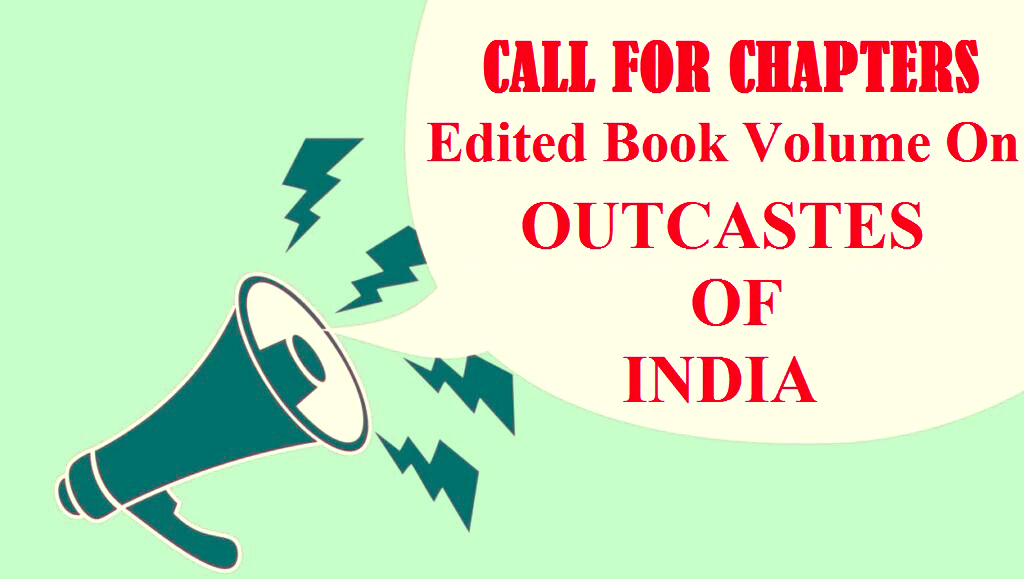

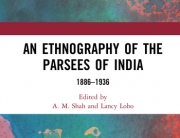
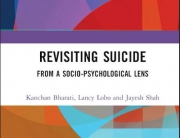
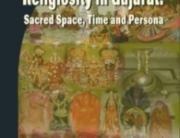
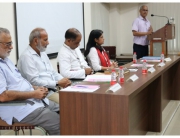
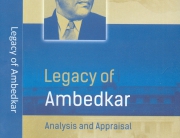
Add Comment